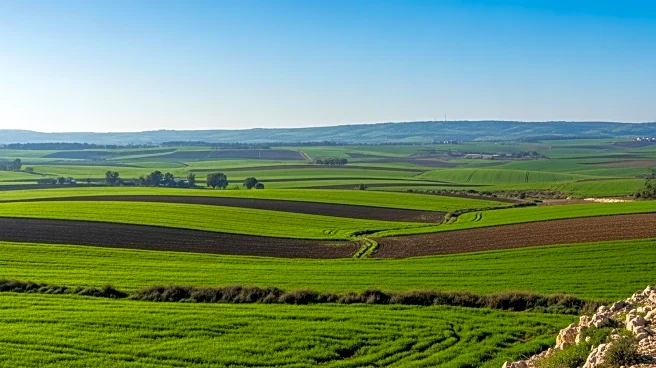What's Happening?
The Jewish Federations of North America (JFNA) has allocated $1.15 million to assist in the restoration of over 230 plots of land in northern Israel that were damaged during the conflict with Hezbollah. This initiative aims to support 200 farmers in replanting their fields and orchards, which have suffered more than $100 million in damages due to missile strikes. The funding is part of a partnership with the Volcani International Partnerships' ReGrow initiative, which focuses on agricultural recovery. The orchards, once restored, are expected to produce at least 9 million apples annually, contributing to local agricultural output and cultural celebrations such as Rosh Hashanah.
Why It's Important?
The funding from JFNA is crucial for the agricultural sector in northern Israel, which has been severely impacted by ongoing conflicts. The restoration of these farms not only supports the local economy but also preserves cultural traditions tied to agricultural production. The initiative highlights the resilience of Israeli farmers who continue to work under challenging conditions, ensuring food security and economic stability. Additionally, the involvement of Jewish philanthropies underscores the importance of international support in rebuilding efforts and maintaining agricultural heritage.
What's Next?
The restoration efforts are expected to continue, with farmers working to quickly replant and revive their orchards to meet market demands. The success of this initiative may encourage further philanthropic support and partnerships aimed at agricultural recovery in conflict-affected areas. As the orchards begin to yield produce, there will likely be increased focus on sustaining these efforts and exploring additional ways to support farmers in the region.
Beyond the Headlines
The initiative reflects broader themes of resilience and community support in times of crisis. It also raises questions about the role of international philanthropy in conflict zones and the long-term sustainability of agricultural practices in areas prone to military activity. The cultural significance of agricultural products, such as apples for Rosh Hashanah, highlights the intersection of tradition and economic recovery.










